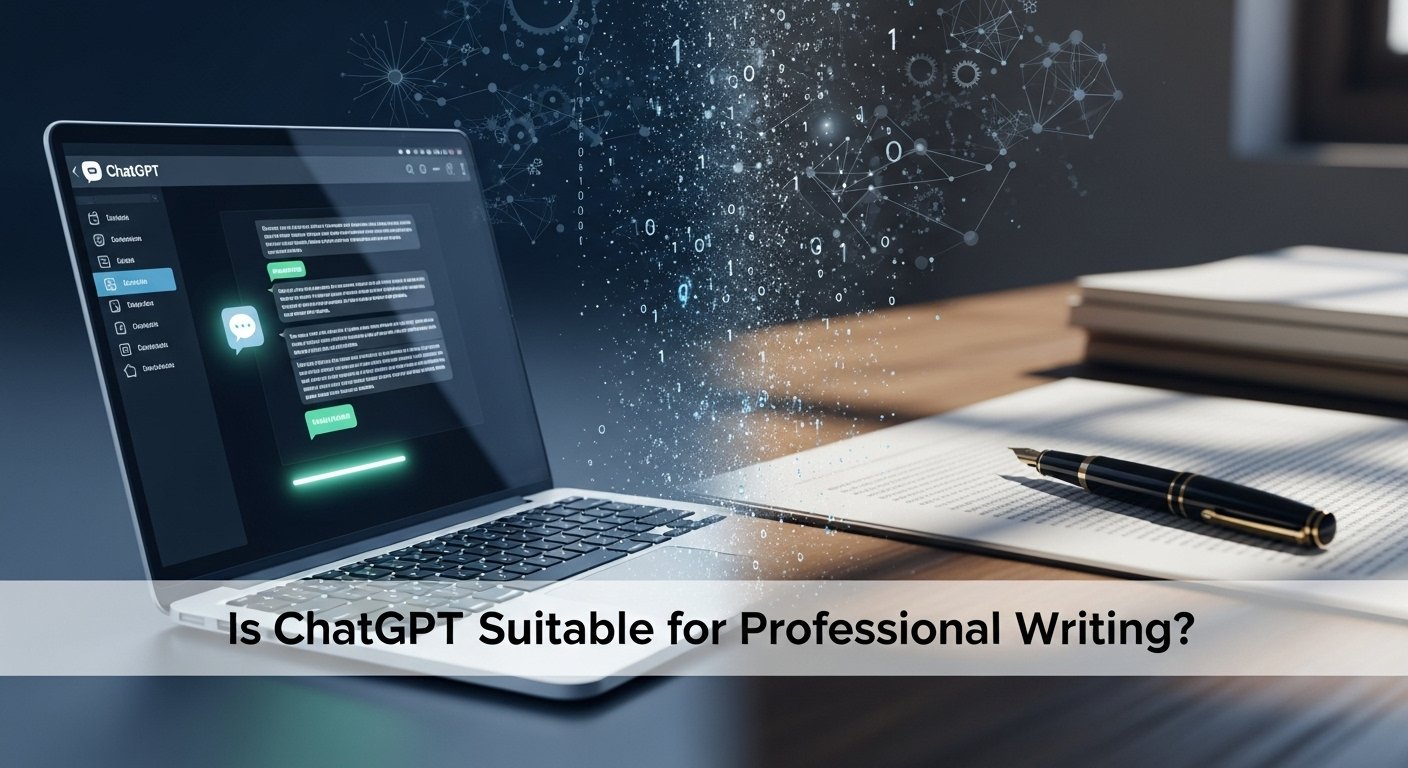ChatGPT has become a widely used tool in writing, offering features that can assist with drafting, brainstorming, and research. But is it suitable for professional writing? This overview explores ChatGPT’s capabilities, limitations, and best practices for professional use. We’ll address common questions, provide practical tips, and consider ethical concerns to help you decide if ChatGPT is right for your writing needs.
Understanding ChatGPT’s Capabilities
ChatGPT, developed by OpenAI, is an advanced language model that generates human-like text based on user prompts. Recent updates, including the release of GPT-4.5 in February 2025 and the introduction of agent mode in July 2025, have enhanced its functionality. Below are its key capabilities for professional writing:
- Text Generation: Produces coherent text for articles, reports, emails, and more.
- Idea Generation: Helps brainstorm topics and create outlines for various writing projects.
- Research Assistance: Uses web search and file analysis to gather up-to-date information quickly.
- Editing and Proofreading: Suggests improvements in grammar, style, and clarity.
- Task Execution: Agent mode allows ChatGPT to perform tasks like scheduling or ordering, which can support writing-related workflows.
These features make ChatGPT a versatile tool, but its effectiveness depends on how it’s used.
Pros and Cons of Using ChatGPT for Professional Writing
Like any tool, ChatGPT has strengths and weaknesses. Understanding these helps writers use it effectively.
Pros
- Efficiency: Generates drafts quickly, saving time for editing and refining.
- Versatility: Handles various writing styles, from formal reports to creative storytelling.
- Accessibility: Available 24/7, providing instant assistance.
- Learning Tool: Offers alternative phrasings and structures to improve writing skills.
Cons
- Lack of Originality: Output can feel generic or formulaic, lacking a unique human voice.
- Potential for Errors: May produce inaccuracies or “hallucinations” (false information), requiring fact-checking.
- Ethical Concerns: Raises questions about authenticity, authorship, and job impacts.
- Dependency Risks: Over-reliance might weaken a writer’s critical thinking and creativity.
| Aspect | Pros | Cons |
|---|---|---|
| Efficiency | Saves time on drafts and research | May lead to dependency |
| Versatility | Handles multiple writing styles | Output can be generic |
| Accessibility | Available 24/7 | Requires human oversight for quality |
| Learning Potential | Suggests improvements | Risk of losing personal voice |
Impact on Writing Skills
Using ChatGPT can influence a writer’s skills in both positive and negative ways.
Positive Impact
- Enhanced Productivity: Writers can produce more content in less time, allowing for more projects.
- Skill Development: Analyzing ChatGPT’s suggestions can teach new techniques and improve craft.
- Creative Spark: Helps overcome writer’s block by providing fresh ideas and perspectives.
Negative Impact
- Skill Atrophy: Over-reliance may reduce critical thinking and creative writing abilities.
- Loss of Personal Voice: Excessive use of AI output can make writing sound impersonal or robotic.
- Plagiarism Risks: Unedited AI content may lead to unintentional plagiarism if not properly modified.
A study from MIT Technology Review (July 2023) found that writers using ChatGPT took 40% less time to complete tasks and produced work rated 18% higher in quality, suggesting it can enhance productivity and quality when used correctly [source].
Comparison with Human Writers

ChatGPT is a powerful tool, but it cannot fully replace human writers. Here’s a comparison:
Strengths of Human Writers
- Emotional Intelligence: Humans convey emotions and empathy, which AI struggles to replicate.
- Contextual Understanding: Humans better understand cultural nuances and context.
- Originality: Human writers bring unique perspectives and experiences.
Strengths of ChatGPT
- Speed: Generates content much faster than humans.
- Consistency: Maintains a consistent tone and style throughout.
- Scalability: Handles large volumes of writing tasks simultaneously.
| Feature | Human Writers | ChatGPT |
|---|---|---|
| Emotional Depth | High, conveys empathy and nuance | Limited, often formulaic |
| Speed | Slower, requires more time | Fast, generates content instantly |
| Originality | Unique perspectives | Can be generic, needs editing |
| Scalability | Limited by time and energy | Handles large volumes easily |
Practical Tips for Using ChatGPT in Professional Writing
To maximize ChatGPT’s benefits while minimizing drawbacks, follow these tips:
- Use It as a Starting Point: Generate outlines or drafts, then refine with your own input.
- Verify Information: Fact-check AI-generated content to ensure accuracy.
- Maintain Your Voice: Edit output to reflect your personal style and tone.
- Set Clear Prompts: Provide detailed instructions for better results (e.g., “Write a 500-word article in a professional tone for a business audience”).
- Use for Research: Leverage web search and file analysis for quick information gathering.
- Collaborate with Humans: Use ChatGPT to assist, not replace, human writers.
For example, a writer might prompt ChatGPT: “Create an outline for a 1,000-word blog post on digital marketing trends in 2025.” The AI can provide a structure, which the writer then customizes with their expertise.
Ethical Considerations
Using AI for professional writing raises ethical questions that writers must address:
- Authorship: Who should be credited for AI-generated content? Many journals, like Springer Nature, state that AI cannot be a co-author source.
- Transparency: Should AI use be disclosed? Academic Medicine recommends documenting AI use in methods or acknowledgments source.
- Authenticity: Does AI content lack the human touch? Some argue it misses warmth and wit source.
- Impact on Jobs: Could AI reduce opportunities for writers? This is a debated topic, with concerns about job displacement balanced by AI’s role as a productivity tool.
Responsible use involves editing AI content, disclosing its use when required, and ensuring it aligns with ethical standards.
Addressing Common Questions
Here are answers to frequently asked questions about ChatGPT in professional writing:
- Can ChatGPT write essays?
Yes, it can generate essays, but quality varies. Review and edit to ensure originality and accuracy. - Is ChatGPT good for content writing?
It’s useful for drafts, ideas, and research but needs human oversight for quality and uniqueness source. - How to use ChatGPT for writing?
Provide clear prompts, edit output, and use it as a tool to enhance your process source. - Does using ChatGPT count as plagiarism?
Not if you edit and attribute the work properly. Unedited AI content can risk plagiarism source. - Can ChatGPT be used for professional writing?
Yes, with responsible use and human input to ensure quality and ethical standards.
Conclusion
ChatGPT is a valuable tool for professional writing, offering efficiency, versatility, and research support. However, its limitations, such as potential errors and lack of originality, require careful human oversight. Ethical concerns, like transparency and authorship, must also be addressed. By using ChatGPT as a collaborative tool—leveraging its strengths while maintaining human creativity—writers can produce high-quality content that meets professional standards. As AI continues to evolve, staying informed about updates and best practices will ensure you use ChatGPT effectively and responsibly.
